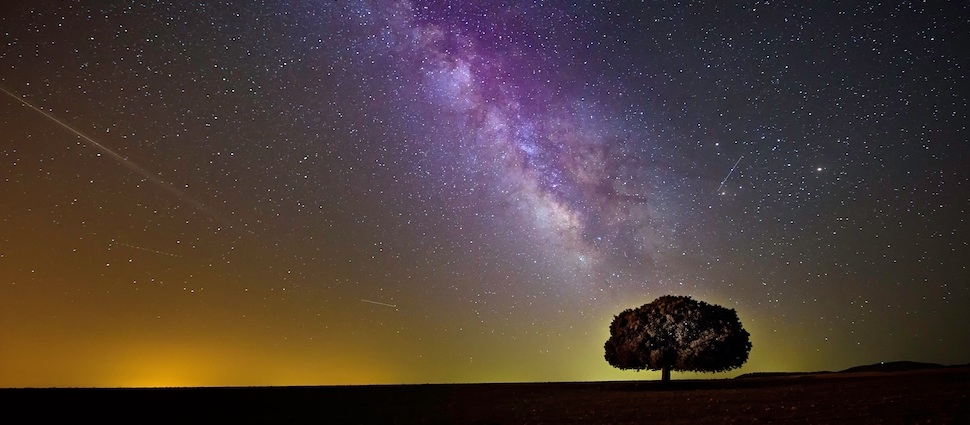The Light still shining in the Darkness

In the Northern Hemisphere, December is the darkest month of the year – a fact that gives added poignancy to the message of the incarnation and its centrality to the gospel. Intentionally or otherwise, when the church chose to adopt 25th December as the date on which to mark the birth of Christ, it happened to be in the darkest depths of Winter. In that context, perhaps more so than any other time of the year, the words of John about Christ’s being ‘the Light’ literally shine most brilliantly as the metaphor speaks into reality. It does so not merely in the physical sense of the reality of being so close to the darkest day and the longest night, but also the spiritual reality that is often accentuated in the human psyche in Winter – the season when fear and depression loom large for many.
There are other senses in which this metaphor for the Christ never ceases to stop people in their tracks and make them think again about the most important issues of life. The oft-repeated comment, ‘These are dark times in which we are living’, may come across as a cliché, but they always have the ring of truth. Whether it be the state of our nations morally, or the miasma of confusion that engulfs them politically, heads will nod on all sides when they hear these words. But there is a deeper sense in which they will always be true this side of Christ’s return. Ever since ‘the lights went out in Eden’ with Adam’s fall this world and our race have been living in darkness both morally and spiritually. The human race has known this in one way or another throughout its history and it has often hailed moments of incremental progress in language that is linked with light. The most significant of these being the so-called Enlightenment otherwise known as the ‘Age of Reason’.
There is, however, a very real Orwellian double-speak in this label. Because rather than being a step forward further into the light, it was actually a conscious step sideways out of it. Up until this point in the evolution of philosophy, God had always featured somewhere in its framework. Humanity had not hitherto dared to exclude the idea of deity from its epistemology. But the aftermath of the French Revolution and its spread to the other countries of Europe and then to the rest of the world changed this forever.
Fast forward to the 20th Century and the rise of Existentialist philosophy. There we find that, as with the beginning of any ‘new’ way of thinking, Enlightenment thought had a trajectory. It may not have seemed obvious from the outset, but it became apparent as it progressed through its staging posts towards its inevitable destination. This was now coming into focus through the writings of the heirs of Voltaire and Rousseau. And interestingly, they were the ones who found themselves – albeit reluctantly – articulating where this philosophy had led them.
Samuel Beckett, the Irish thinker and playwright who spent much of his life in Paris, captured it powerfully in words he puts into the mouth of Pozzo, one of the characters in his play, Waiting for Godot. As Pozzo expresses his frustration over the passage of time and the fragility of life he says, ‘We give birth astride of a grave. The light gleams for an instant and then it is night.’ His words could not be bleaker or darker; yet in so many ways they represent the Enlightenment’s coming of age. This is what it grew up to be and its tragic reality is played out on a daily basis in the lives of countless millions in our supposedly enlightened generation. Against this backdrop, the church has quite literally got a better story to tell. Not some work of fiction; but the real story of genuine hope that is bound up with Jesus.
How striking, therefore, that John should give us the words that most aptly sum up the significance of the story of redemption that is embedded in the history of our world and incarnated in the Person of Jesus of Nazareth. In his summation of the gospel in his Prologue John introduces the Logos (identified as Christ by its end) as ‘the life’ that was ‘the light of men’. From the very beginning of time his light had already been shining, bringing light ‘to everyone’ (Jn 1.9). Even before his incarnation, he had always been involved with the creation of which he was God’s agent. He was only anticipated through promise and prophecy; he had already been experienced, albeit in a provisional way. Jesus would later say of Abraham, ‘He rejoiced that he would see my day. He saw it and was glad’ (Jn 8.56).
Now, however, as John both proclaims and unpacks the mystery of the incarnation, he takes the revelation of the light of Christ to a whole new level. He brings us into the breath-taking wonder of the moment deity assumed humanity fir us and for our salvation. And, in so doing he declares, ‘The light is still shining [lit] in the darkness and the darkness has not overcome it’ (Jn 1.5). From the moment of the incarnation onwards the Light has shone with ever greater intensity. Indeed, as the darkness deepens – as is most surely happening in the decline of Western civilisation – the light of Christ shines ever more brightly.
What better way to experience the blessing of this advent season than to revisit this great truth and what greater message to proclaim to a world engulfed in the darkness of spiritual death!





